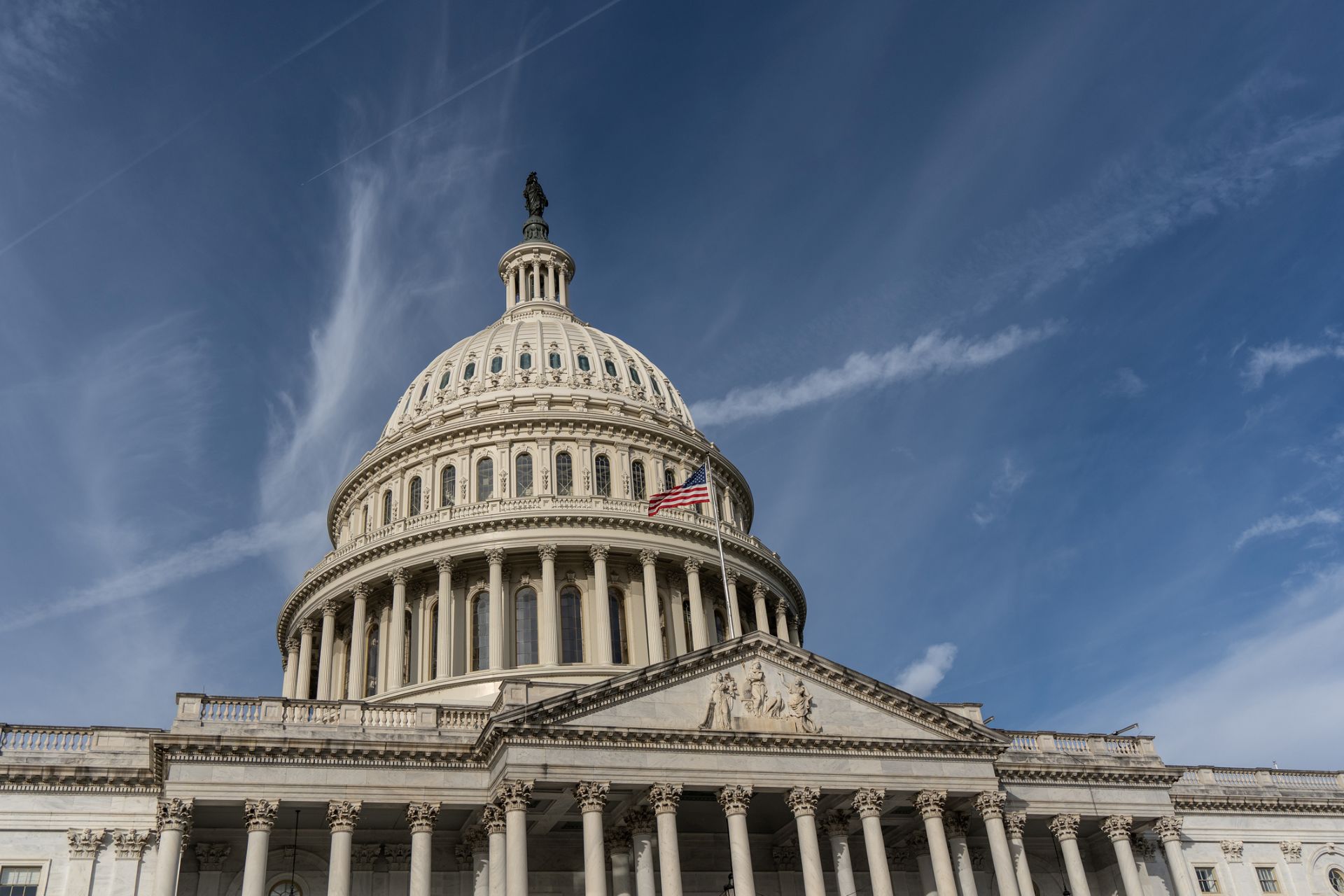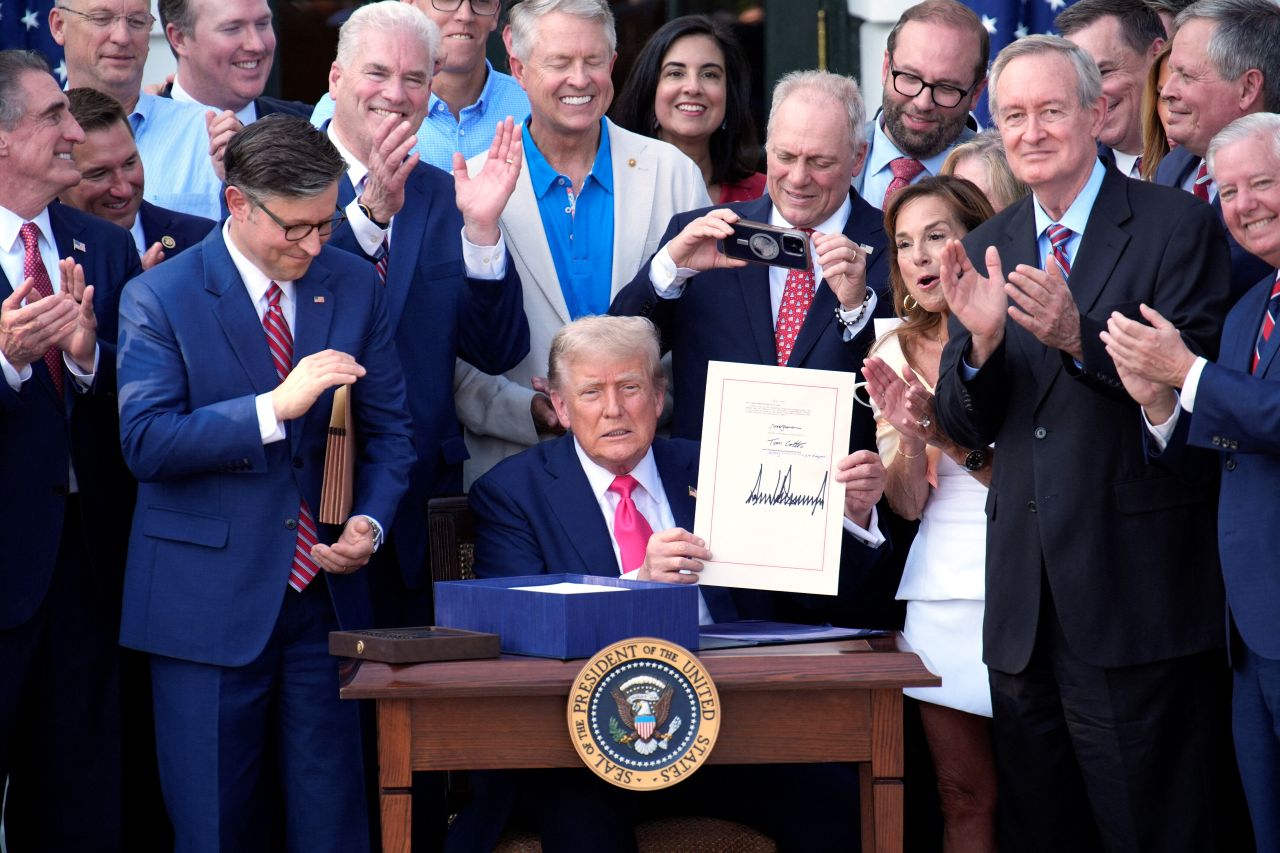Why climate-skeptical Republicans may protect billions in taxpayer funding for a climate program

Funded by billions of dollars in new taxpayer subsidies approved by the Biden Administration, more than 160 projects have been proposed across the U.S. to capture carbon dioxide pollution from industry and bury it underground as a strategy to address climate change.
But Donald Trump, who has called climate change a hoax, is returning to the White House on Jan. 20, and climate-skeptical Republicans are also taking control of the Senate and House. Trump’s allies in the Project 2025 Presidential Transition Project have called for cutting climate programs and the termination of all taxpayer subsidies for carbon capture.
If the Republicans eliminate the Biden-era subsidies, most of these proposed carbon capture projects would die – because the technology is expensive and only viable with government subsidies, according to Charles Harvey, a professor of civil and environmental engineering at MIT who was scientific advisor to an early carbon capture company.
“If the Project 2025 idea goes through and they cut the subsidies, I think they will all shut down immediately,” said Harvey of the carbon capture projects.
However, the politics within the Republican Party and the economic interests of the oil and gas industry make Congress – despite budget-cutting rhetoric – unlikely to eliminate the Biden-era subsidies for carbon capture in the Inflation Reduction Act of 2022 and earlier legislation in 2021, according to industry observers interviewed by Oil & Gas Watch.
Some Republican senators are even urging their colleagues to move in the opposite direction – to not only extend, but significantly increase, taxpayer subsidies for carbon capture.
This may be in part because oil- and gas-related industries in these senators’ states are using the federal subsidies for carbon capture. More than 90 percent of taxpayer-supported carbon capture projects in recent years have been run by fossil fuel companies that use captured carbon dioxide by forcing it underground to produce more oil and gas.
Sen. John Barrasso of Wyoming and two other Republican senators on Sept. 27 introduced legislation that would raise federal taxpayer subsidies for carbon capture projects that inject carbon into the ground to produce more oil and gas, a process called enhanced oil recovery.
“For years, Wyoming has proudly led the way on carbon capture projects,” Barrasso said in a press release. “We’ve successfully used this technology to take carbon out of the air and find productive uses for it. One of those uses includes enhanced oil and natural gas recovery.”
At least seven carbon capture projects are planned in Wyoming, including the Denbury Corvus Sequestration Hub and the Denbury Cygnus Sequestration Hub, both of which are owned by ExxonMobil, according to public records compiled on the Oil & Gas Watch database.
ExxonMobil and its employees gave $18,208 to Barrasso’s political campaign in the most recent election cycle, according to OpenSecrets.org.
A co-sponsor of the bill to increase federal subsidies for “enhanced oil recovery” was Sen. Bill Cassidy, a Republican from Louisiana.
“Building the infrastructure to capture carbon in Louisiana will create tens of thousands of jobs and there will be tens of billions of dollars of investment,” Cassidy said. “This will help Louisiana continue to lead as an energy and manufacturing state.”
There are at least 60 carbon capture projects proposed in Louisiana – the most of any state – including the Denbury Draco Sequestration Hub and five other facilities owned by Denbury and its parent company, ExxonMobil.
Daniel Cohan, a professor of civil and environmental engineering at Rice University and author of the book “Confronting Climate Gridlock” said that the strongest supporters of carbon capture are the oil and gas firms that have been using the taxpayer subsidies for enhanced oil recovery, not environmental groups or climate activists.
“The biggest beneficiaries of carbon capture subsidies are fossil fuel companies, and so to the extent that their lobbyists are able to influence Congress and the Trump Administration, these would be the parts of the Inflation Reduction Act that are most lucrative for fossil fuel companies,” said Cohan.
He added, however, that there is an irony to climate-skeptical Republicans pushing hard to keep this climate program.
“It does make strange bed fellows when you have politicians who want to extend carbon subsidies and yet don’t accept the science of climate change,” Cohan said. “Because the only reason for capture carbon is if you think the CO2 is harmful to the atmosphere.”
Here’s how the politics of carbon capture subsidies may break down in the upcoming Republican Congress.
When the next sessions of the U.S. Senate and House begin in January, Republicans will have razor-thin majorities – 53 to 47 in the Senate, and 220 to 215 in the House. And that House margin could shrink to only a vote or two if some of the House Republicans resign, as expected, to join the Trump Administration or take other positions.
That means that Republican proposals to overturn the Inflation Reduction Act (including its carbon capture subsidies) would likely be approved only if Republicans can win near unanimous support of all their colleagues. The act received the votes of all Democratic lawmakers when it passed in 2022.
Building unanimous Republican support for killing the Inflation Reduction Act could be tough, because about two thirds of the “green” investments supported by the act are bringing money to Republican districts.
“It is very clear the Republican Party is very divided on carbon capture,” said Jane Patton, the Center for International Environmental Law’s U.S. Fossil Economy campaigns manager. “The oil and gas industry wants carbon capture, but there is also a much more conservative wing of the party that is interested in diminishing all subsidies from the federal government. And those two sides will clash.”
An example of this internal disagreement arose on Aug. 6, when 18 House Republicans, led by Rep. Andrew Garbarino of New York, wrote a letter to Republican House Speaker Mike Johnson urging him not to end clean energy subsidies in the Inflation Reduction Act, many of which are for carbon capture projects.
“Prematurely repealing energy tax credits, particularly those which were used to justify investments that already broke ground, would undermine private investments and stop development that is already ongoing,” the Republican House members wrote.
Simple math suggests that if even if a third of these 18 House Republicans voted against the repeal of the Inflation Reduction Act, the Biden-era subsidies for carbon capture would continue.
Other Republicans are calling for the complete repeal of the Inflation Reduction Act, including all subsidies for “green” programs like carbon capture. For example, Texas Rep. Chip Roy blasted Garbarino and his 17 colleagues, writing on X (Twitter): “They want to preserve so-called ‘green’ handouts to Democrats' corporate cronies.”
Wil Burns, co-director of the Institute for Responsible Carbon Removal at American University, said that another hint that the Trump Administration will not abandon federally-funded carbon capture programs is that many of Trump’s picks to run top federal agencies publicly support carbon capture.
For example, Burns said that Rep. Lee Zeldin, whom Trump selected to run EPA, and Doug Burgum, the governor of North Dakota who Trump picked for Secretary of the Interior, are both supporters of carbon capture. So is Harold Hamm, the billionaire fracking industry pioneer and chairman of the Continental Resources oil and gas company, who is a close political ally of Trump, Burns said.
“Harold Hamm is the horse whisperer to Trump on all things fossil fuels, and he [Hamm] has an interest in Summit Carbon Solutions, the major CO2 pipeline company that is trying to create all these [carbon capture] projects for ethanol plants in the Midwest,” Burns said. “Hamm has consistently told Trump that he sees a role for carbon capture and storage, and I think that will have an influence.”
All this Republican support for a climate program, however, may not necessarily be good for the climate.
That’s because carbon capture is a technology that some critics say is largely untested on a large scale, may pose public health risks to local communities, and has not proven economically viable. While this technology may theoretically provide climate benefits for some heavy industries, carbon capture so far has mostly been used by fossil fuel companies to extract more oil and gas and for marketing purposes. Announcements about “climate friendly” fossil fuel products made with carbon capture are being used to justify new fossil fuel projects and help delay the transition to cleaner sources of energy, like wind and solar, the skeptics argue.
In terms of marketing, some European nations and countries in Southeast Asia want to buy U.S. fossil-fuel products that advertise that they use carbon capture, so that these countries can assert (dubiously) they are meeting their commitments to the Paris Agreement on the climate, said Jane Patton of the Center for International Environmental Law.
“The American oil and gas industry is largely appealing to an overseas market, and an overseas market wants carbon capture,” Patton said.
Jenny Cassel, senior attorney at Earthjustice said: “Carbon capture is simply being used as a justification to extract more fossil fuels from the ground to keep what might not otherwise be profitable fossil fuel extraction going. They are not worried about it being a climate solution or not being a climate solution. They are looking to subsidize, in a significant way, the fossil fuel industry.”















